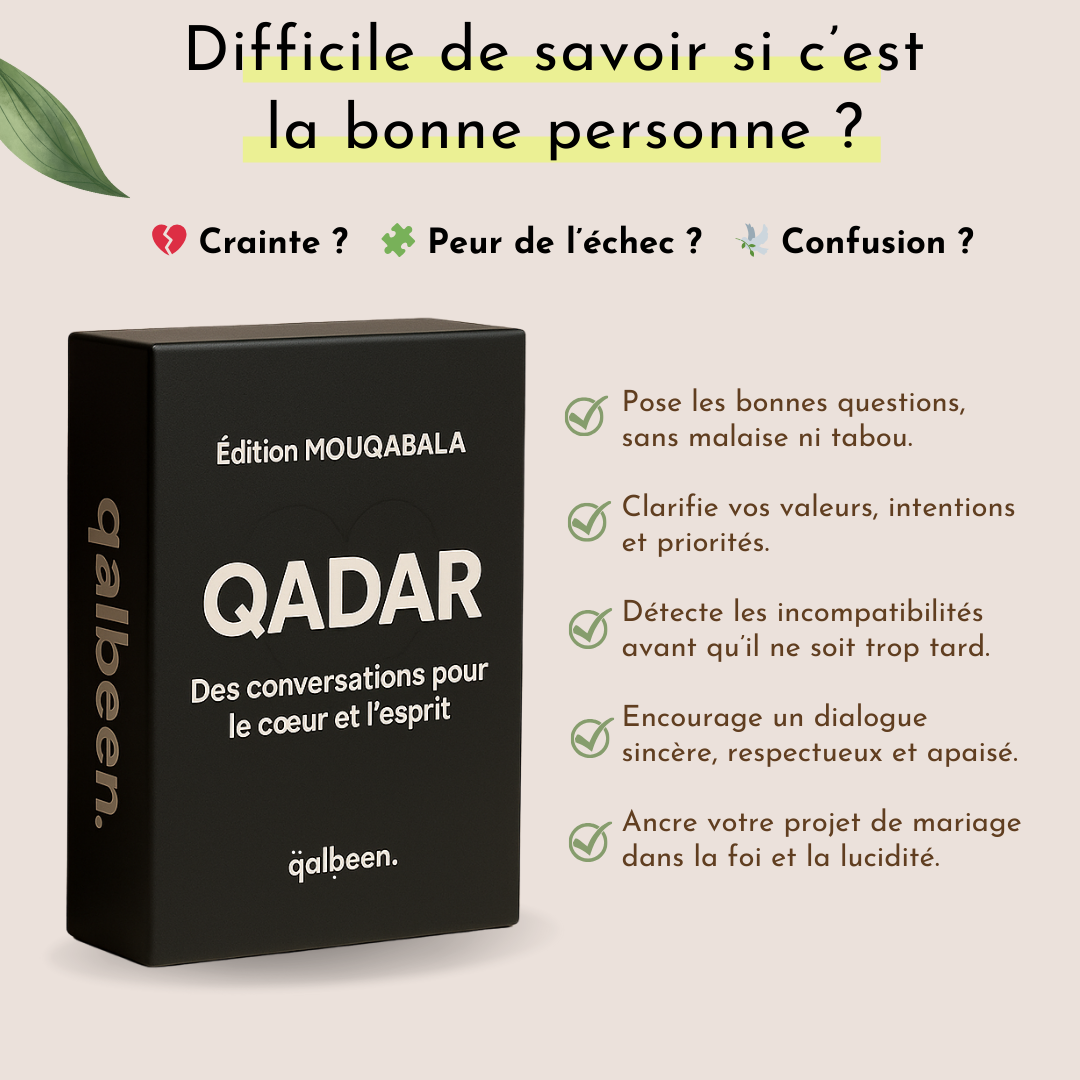communication in Muslim couples is an essential pillar for maintaining harmony and mutual understanding. By following Islamic principles, couples can build a strong relationship based on respect, love and effective communication.
The Foundations of Communication in Islam
Introduction to the Foundations of Communication
Communication is a central element in any relationship, and this is particularly true in the context of Muslim marriage. In Islam, communication is not only a practical skill, but also a moral and religious obligation. It is based on principles of respect, listening, and empathy, all anchored in the teachings of the Koran and the Hadiths.
Basic Principles
- Mutual Respect
One of the main foundations of communication in Islam is mutual respect. Allah says in the Quran:
"And behave properly towards them." (Surah An-Nisa, 4:19)
This verse highlights the importance of treating your spouse with respect and dignity. Respect in communication involves listening attentively, not interrupting, and responding in a thoughtful and caring manner.
With the HABIBI cards from Qalbeen, each question is thought out to create more closeness, love and understanding between the spouses. There are questions about finances, household organization and current issues.
When Fatima and Ahmed discuss the management of family finances, they make sure to take turns speaking. Fatima expresses her concerns about the grocery budget, and Ahmed listens attentively without interrupting, then responds with practical solutions. Their mutual respect allows for a productive and harmonious discussion rather than conflict without resolution.
- Active Listening
Active listening is essential to understanding your partner's needs and feelings. The Prophet Muhammad (peace and blessings be upon him) was known for his ability to listen attentively to the concerns of others without interrupting them.
Aisha and Saïd had communication difficulties, often disagreeing on how to raise their children. Inspired by Islamic teachings, they decided to practice active listening. Every evening, they took ten minutes to talk about their day without interruptions to exchange habibi cards with the help of each other. This new habit brought them closer together and considerably reduced their arguments.
- Empathy and Compassion
Empathy and compassion are central virtues in Islam. The Prophet Muhammad (peace and blessings be upon him) said:
"The best among you is the one who is best to his wife."(Hadith reported by At-Tirmidhi)
Showing empathy means understanding and sharing the feelings of others. Compassion involves showing kindness and support, especially in times of difficulty.
When Ali comes home tired from work, his wife Leila notices his stress. Instead of reprimanding him for not doing a household chore, she offers him a moment of rest and a refreshing drink. This compassion strengthens their bond and facilitates better communication and rahma with each other.
- Non-Verbal Communication
In Islam, non-verbal communication is also important. A smile, an attentive look, or an affectionate gesture can reinforce the words and show your spouse that you appreciate and respect them.
Sarah and Omar often use affectionate gestures to strengthen their communication. A warm smile or comforting hug after a long day at work helps create an atmosphere of mutual support.
It all depends on each person's love languages, it is important to question the other about their love language.
Expression of Feelings
Expressing your feelings is crucial to avoid misunderstandings and strengthen trust in the couple. Open and honest communication helps clarify emotions, avoiding unresolved tensions and frustrations. Here are some tips for healthy expression of emotions:
Use of "I"
When talking about your feelings, use sentences that start with "I" rather than "You." This helps avoid blaming your partner and creates a more constructive atmosphere.
- Example: Instead of saying "You never listen to me", you can say "I feel ignored when you don't pay attention to what I say."
This approach focuses on your feelings without blaming the other, which encourages a more positive and empathetic response.
Clarity and Honesty
Be clear and honest about how you feel without exaggerating or minimizing your emotions. Authenticity is essential for effective communication and for your partner to truly understand how you feel.
- Example: If you're feeling stressed about a financial situation, say it clearly: "I'm really stressed about our current financial situation and I'd like us to talk about it."
Clarity and honesty facilitate better understanding and allow us to find solutions together.
Conflict Resolution in Muslim Couples
Conflicts are inevitable in any relationship, but they can be resolved constructively by following certain communication strategies.
Conflict Resolution Strategies
Constructive Dialogue
Address problems calmly and look for solutions together. Constructive dialogue involves talking about your concerns without criticizing the other person.
- Example: If a disagreement arises over the management of household chores, discuss it calmly and propose solutions: "I think we should review the distribution of tasks so that it is more equitable. What do you think about making a list together ?"
Patience and Tolerance
Be patient and tolerant of your partner, especially in times of stress or disagreement. Patience allows you to give the other person time to understand and react appropriately.
- Example: If your partner is late for a planned outing, instead of immediately reacting with anger, try to understand the reasons for the delay and discuss it calmly later.
Search for Islamic Advice
Consult Islamic teachings and scholarly advice for solutions based on Islamic principles. Islam offers plenty of advice on how to resolve conflicts in a fair and respectful manner.
- Example: If you are facing a persistent problem, seek guidance from the Quran or Hadith, or speak to a Muslim marriage counselor.
Practical Examples
- Sharing of Responsibilities
A couple can discuss and agree on the distribution of household and parental tasks to avoid resentment.
- Example: "We should make a list of household chores and decide together who will do what each week to make it fair."
- Quality Time
Plan times to talk without distractions, like a walk or dinner together. Quality time strengthens emotional connection and allows for important discussions in a relaxed setting.
- Example: “Let’s take an evening each week to have dinner together and talk about whatever’s on our minds."
For your quality time 100% of couples recommend our "HABIBI" card set for Muslim couples.
Islamic Principles for a Happy Marriage
The Basics of Marriage in Islam
Islamic principles for a happy marriage include respect, love, compassion and communication. Islam encourages couples to:
Respect the Rights of Everyone
Each partner has rights and responsibilities towards the other. It is important to respect these rights to maintain balance and harmony in marriage.
- Example: “We must remember that we each have rights and duties towards the other. Let's respect our commitments so that our marriage is strong."
Practice Gratitude
Be grateful for your partner's good deeds. Gratitude reinforces positive feelings and encourages kind behaviors.
- Example: “Thank you for everything you do for our family. I am truly grateful for your support."
Show Mercy
Mercy is a key element of a successful marriage in Islam. Showing mercy means being forgiving and understanding of another's mistakes and imperfections.
- Example: “We all make mistakes. Let's be forgiving and support each other to overcome our challenges."
Balance between Spouses
A balanced marriage in Islam is based on mutual understanding and reciprocity. Couples should strive to maintain a balance in their roles and responsibilities.
- Example: “Let's work together to balance our responsibilities at home and at work, so we can both feel supported and valued."
By following these principles and strategies, you can improve your communication, resolve conflicts constructively, and strengthen your relationship in accordance with Islamic teachings.





















